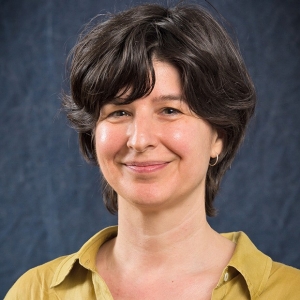“The fact that both my undergraduate and graduate degrees were in small departments really contributed to my enjoyment of my university experience,” says Vallée. “The largest class I might have had at the time was 30 students, and I had one seminar course with a total of four students. The teachers were great as well.”
Vallée, who since 2006 has been with the Montreal-based Secretariat of the Commission for Environmental Cooperation (CEC) of North America, is certainly tapping into the knowledge gained from her Concordia degrees. As a project coordinator she, along with the small team that comprises the Environmental Quality and Climate Change program, is responsible for the development and delivery of a handful of projects and initiatives.
They include the North American Pollutant Release and Transfer Register project, which brings together data and information to provide a more complete and accurate picture of the sources and management of industrial pollutants across North America, to support decision-making relative to pollution prevention and sustainability.
“We’re basically three countries — Canada, the United States and Mexico — working together to protect our shared environment,” explains Vallée. “There are, of course, differences in how each country does things and what each country’s environmental priorities are, but we try to bring together the relevant information and expertise, exchange best practices, and find solutions that benefit everyone. It’s a very collaborative effort.”
North America shares vital natural resources including air, oceans and rivers, mountains and forests, which form the basis of a rich network of ecosystems that sustain our livelihoods and well-being. If they are to continue being a source of future life and prosperity, these resources must be protected.
The Commission for Environmental Cooperation routinely brings together a wide range of stakeholders and aims to exchange information and best practices to protect the environment, raise the profile of issues deemed most important, and promote sustainable communities and ecosystems.
Satisfaction in shaping future environmental policies
The intergovernmental organization was established by the North American Agreement on Environmental Cooperation and is supported financially by all three governments. Part of what makes Vallée’s work interesting is that they must deal with any given political reality at the time. “I really love my work and I’m in the position to be able to help make a difference,” she says.
“It’s gratifying for me to see the political engagement for sustainable practices and the implementation of environmental priorities for all three countries based on our work. For example, through trinational collaboration in one project, Mexico is currently assessing the feasibility of establishing a maritime emissions control area similar to that in Canada and the United States, which will result in a decrease in air pollutants and a positive impact on human respiratory health,” Vallée says.
“Some of our projects address both human health issues — related to air contaminants — and climate change — such as greenhouse gas emissions. I think working at the CEC is a great way to make a difference when it comes to pressing environmental issues.”
 Danielle Vallée says it’s immensely gratifying to see, in her work with the commission for environmental cooperation, the political engagement and implementation of environmental priorities for North America.
Danielle Vallée says it’s immensely gratifying to see, in her work with the commission for environmental cooperation, the political engagement and implementation of environmental priorities for North America.